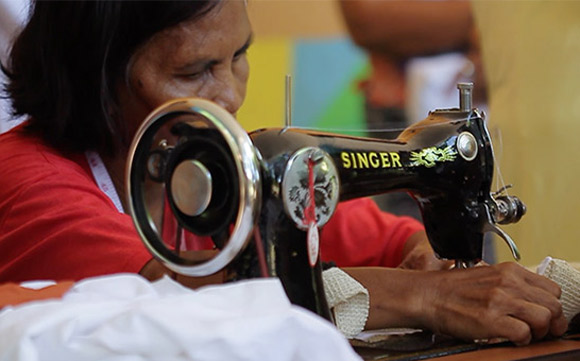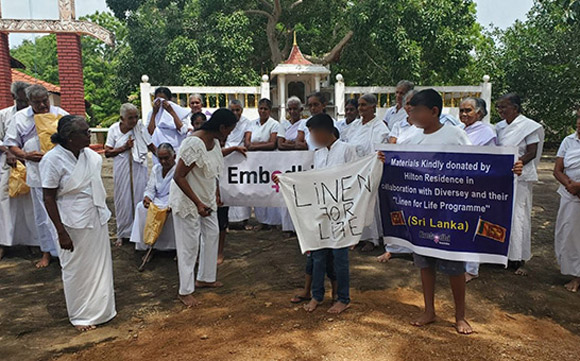
Transforming Hotel Linens into Opportunities
Each year, a typical 400-room hotel generates two to three metric tons of used linens—bedsheets, pillowcases, towels, tablecloths, uniforms, and more. Rather than sending these materials to landfills or incinerators, Linens For Life™ provides a sustainable solution that repurposes discarded linens while creating economic opportunities for those in need.
This initiative empowers at-risk families, including refugees, disaster survivors, and individuals escaping trafficking or domestic abuse, by providing sewing training and donated equipment to transform unwanted linens into useful, sellable items such as tote bags and clothing.
By upcycling linens in a way that drives both social and environmental impact, Linens For Life™ is helping communities build sustainable livelihoods while reducing textile waste.
